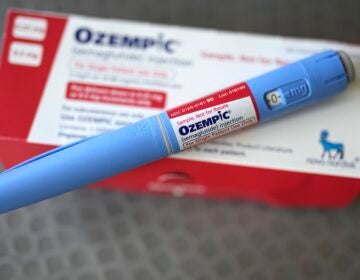Delaware lifts restrictions on who can qualify for hepatitis C treatment

(Tashatuvango/Bigstock)
Delaware is phasing out its restrictions on who can get newer, more effective hepatitis C treatments.
The drugs are essentially a cure for a blood-borne disease that’s a leading cause of liver failure in the United States. But the cost has put many states, including Delaware, in a fiscal bind.
In 2014, Delaware spent nearly $2.5 million to treat 44 people; last year, it cost the state $13.5 million to treat 141 people.
Stephen Groff, director of Delaware’s Medicaid program, said at least 1,600 people with Medicaid have hepatitis C. Treating everyone at once hasn’t been an option.
“I can clearly state it is not something our budget would be able to handle,” he said.
In response, his agency has restricted the drugs to those who have more severe liver disease.
New Jersey and several other states have done the same thing. But facing pressure from lawyers, patients and doctors — along with the release of new scientific and federal guidelines — Groff’s agency has decided to phase out any disease criteria in order for Medicaid beneficiaries to qualify for treatment.
“It’s a huge step,” said Laura Waterland, with the Community Legal Aid Society in Delaware.
Waterland had been preparing a case against the state for a client who was denied treatment several times, basically because she wasn’t sick enough.
Groff doesn’t have an estimate of how many millions more it will cost the state to expand coverage, but he’s “happy we’re moving forward, so we’re ensuring all of our members who need treatment are able to access that treatment.”
He hopes, however, that not everyone will rush in for treatment at the same time and that, over time, the cost of these drugs will go down.
Pennsylvania’s Medicaid program is also weighing whether to ease its eligibility guidelines.
WHYY is your source for fact-based, in-depth journalism and information. As a nonprofit organization, we rely on financial support from readers like you. Please give today.




